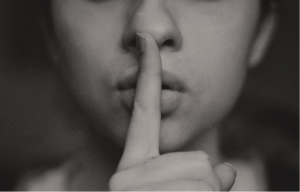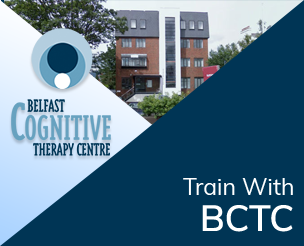
(Image by Kristina Flour, Sourced from Unsplash)
CW: discussion of rape and sexual assault.
Why do so many rapes and sexual assaults go unreported? According to the Crime Survey for England and Wales, a staggering 83% of people who experienced a sexual crime did not report it to the police.
Why do people, both men and women, feel they have to live in a blanket of silence?
These are questions many of us have asked, in one form or another, especially with the recent media focus on sexual crimes and violence in the workplace and high end industries.
Shame Breeds Silence
Guilt can be a useful emotion in prompting us to recognise a negative behaviour in ourselves and do something to correct it – it is about what we have done.
Shame, on the other hand, relates more to who we feel we are as people. This makes shame a potent emotion that holds us back from wanting to reveal what we view as something ‘wrong’ in ourselves. The DSM-5 notes shame as one of the main emotional reactions that can occur after a traumatic experience.
Where does this sense of shame come from?
Blaming ourselves after a trauma is incredibly common, and again is noted in the DSM-5 as a normal response. In the wake of an assault, attempts to find meaning or a cause often turn inward. In therapy, we often find that much of the shame people feel about a traumatic event comes from not knowing about how their bodies or minds function during such distress.
Questions such as, ‘Why didn’t I scream?’ or ‘Why didn’t I fight back?’ are frequently asked. Many of us have heard of the fight or flight response, but few know about the overlooked ‘freeze’ component of this response. It’s the instinct within animals (including us) to stop moving or fighting to try to prevent further or worse harm coming to us. It’s an ancient survival mechanism that we do not choose to use – it kicks in automatically and makes the choice for us.
Dissociation is another common psychological defence mechanism that few of us know about, and often goes hand in hand with the freeze response. It refers to when the mind detaches itself from reality in some way because it has become emotionally overwhelmed. Many people who have experience rape or sexual assault have said it felt as though ‘I wasn’t there’ or ‘I wasn’t in my body’ or ‘It was happening to someone else’.
This tendency to blame ourselves can serve as a huge barrier to reaching out. The UK Office for National Statistics reported that of the people who did not report sexual assaults or rapes to the police, 47% stated this was because of embarrassment, and 35% because they thought it would be humiliating. Strikingly, embarrassment was the most common reason for not reporting to the police.
‘How Much Did You Have to Drink?’ or ‘What Were You Wearing?’
Alcohol and drugs are often involved in sexual assaults and rapes, whether a drink is deliberately spiked or if we’ve had too much to be able to consent. This can lead us again to assign the blame to ourselves and wonder what might have happened ‘if only’ circumstances had been different. Fisher et al. (2003) found that in cases where an assault had taken place and alcohol or drugs were involved, people were less likely to report the crime to authorities.
The reality is that being intoxicated does not give anyone the right to make sexual advances. The same applies for whatever clothes we’re wearing. We always retain the right to say ‘no’. Substances and clothing do not take this right away from us.
Familiarity
The common adage of ‘stranger danger’ is often a misnomer. A large proportion of rapes and sexual assaults are carried out by people known to the victim. According the UK Office for National Statistics, 33-45% of sexual crimes against women were committed by a partner or ex-partner. And whilst the majority (69% for men, 57% for women) of sexual crimes were attributed to ‘other’ relationships, 58% of these perpetrators were known acquaintances. Jones et al. (2009) found that having a prior relationship with the assailant was a significant factor in not reporting a rape or sexual assault.
The possible reasons for this are complex and individual in each case. Loyalty to a marriage or relationship, fear of more violence, not wanting the other person to be punished or feeling it is a ‘private matter’ to be settled within the relationship or family are all reasons cited according to the UK Office for National Statistics.
‘Nobody Will Believe Me’ or ‘It Wasn’t Really Rape’ – The Effect of Rape Myth
The stereotypical ‘mythos’ that surrounds rape can provide a significant barrier to someone feeling able to report the crime and trust that they’ll be believed. The classic image our culture has is of a masked stranger finding someone in an alley late at night, with a threat of violence or a weapon in hand.
This is rarely the case in reality.
The term ‘rape myth’ refers to a collection of beliefs, like those above, that are incorrectly held by our society at large. If someone is sexually assaulted or raped by someone they know at a party, they may be more likely to question whether it was ‘really’ wrong, or whether anyone else will see it that way, for example.
This also presents a significant barrier for many men speaking out. Anecdotal reports indicate that often, men believe they ‘cannot’ be a victim as the media rarely portrays this experience, or that ‘as a man’ they should have been able to defend themselves. Or even that ‘red-blooded males’ should always want sex, so there was something wrong within themselves if they didn’t consent.
DuMont et al. (2003) found a link between rape myth and the probability of someone reporting a rape or sexual assault. Victims who had experienced threatened or actual physical injury during the attack were more likely to report the crime than those who didn’t.
What is crucial here is that the definition of sexual assault or rape does not involve physical violence or specify a gender – it is a sexual act carried out on someone against their will or without their consent. Sexual contact that begins as consensual can become rape if consent is withdrawn after it has begun, and not involve violence, for example.
Putting Others First
According to the UK Office for National Statistics, 49% of people who reported a sexual crime did so because they didn’t want it to happen to someone else. The DSM-5 highlights that reduced self-worth and an increase in negative beliefs about ourselves are common after traumatic incidents. Linked to the shame discussed above, a negative view of ourselves can mean we don’t see what happened to us as ‘important’ enough to report (20%) unless someone else is also at risk.
Anecdotal reports in the media attest to people who remained silent for years for fear of tearing their families apart with accusations, or who did not speak out for fear of the repercussions professionally or personally. Often, people will shoulder the pain themselves until someone else becomes at risk – we find our resilience in defence of others.
Believing It Won’t Help
It is easy to see how people believe reporting sexual crimes to the police will not change anything. According to the UK Office for National Statistics, of the people who did not report the crime, 40% thought the police couldn’t help, 28% didn’t think they would be believed, 22% did not want to go to court, and 19% felt that the legal system would not ‘do anything’.
Recent high profile cases in the media highlight the particular challenges of prosecuting these cases. The fears of humiliation or embarrassment highlighted above may be linked to the conception of how the defence attempts to cast doubt on the moral character of the victim. Providing solid evidence of a crime that occurred in a private space is also notoriously difficult.
Given that traumatic incidents often leave people with a chronic sense of fear, dread or shame, being asked to ‘relive’ this in the courtroom is a daunting prospect for anyone. Many people do not believe they can emotionally withstand the rigours of court proceedings on top of the intense distress they already feel.
At BCTC, we don’t believe people should be suffering in silence. We provide non-judgmental therapy to people who have been affected by traumas, whatever stage of the process they find themselves in.
Have you been affected by any of the issues raised in this post? You’re welcome to contact us to speak with a professional therapist. We’re happy to hear from you.
DuMont, J., Miller, K.-L. & Myhr, T. L. (2003). The Role of “Real Rape” and “Real Victim” Stereotypes in the Police Reporting Practices of Sexually Assaulted Women. Sage Journals – Violence Against Women (9), 4, (466-486).
Fisher, B.S., Daigle, L.E., Cullen, F.T. & Turner, M.G. (2003). Reporting Sexual Victimisation to the Police and Others. Sage Journals – Criminal Justice and Behavior (30), 1, 6-38.
Jones, J.S., Alexander, C., Wynn, B.N., Rossman, L. & Dunnuck, C. (2009). Why Women Don’t Report Sexual Assault to the Police: The Influence of Psychosocial Variables and Traumatic Injury. Journal of Emergency Medicine (36), 4, 417-424.
UK Office for National Statistics (2018). Sexual Offences in England and Wales Ending March 2017.


